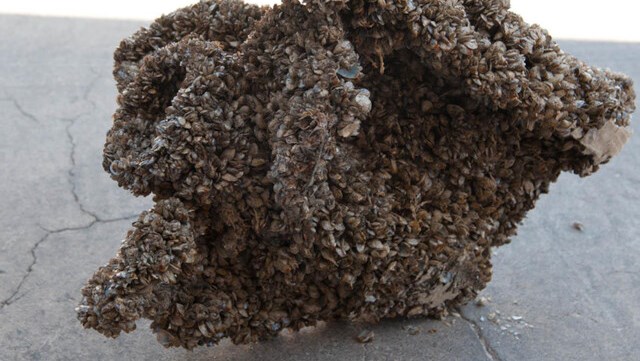The federal government needs to do more to protect B.C. waterways from the devastating effects posed by invasive zebra and quagga mussels, says the Okanagan Basin Water Board.
“Our waterways are at risk,” OBWB deputy administrator James Littley told Kelowna city council Monday afternoon.
Since the province began inspecting boats entering the province in 2015, Littley says more than 165 mussel-fouled boats have been prevented from coming into the province.
However, federal funding has all but dried up for mussel inspections along the borders of Canada’s three western-most provinces.
“The federal government has been basically absent from invasive mussel protection.
“There are funds, but most go to the Great Lakes. A little goes to marine environments in B.C. but almost nothing for stopping these mussels from coming into Saskatchewan, Alberta or B.C.”
An infestation, says Littley, would be devastating.
He says an updated cost analysis by the province last year estimated a mussel infestation could cost up to $129 million per year including more than $40 million in lost tourism revenue, lost property value and lost property taxes.
Provincial inspection budgets and staffing shortages have also plagued inspection sites over the past few years according to Littley.
Federal matching funds would help shore up inspection stations.
“We also want CBSA to inspect all watercraft coming from the south and ask the federal government to support a temporary boat ban.”
The potential for invasive mussel infestation hit close to home last summer when mussels were discovered in the Snake River in Twin Falls, Idaho, a state that shares a border with B.C.
“Idaho’s response was to dump chelated copper pesticide into a 26 kilometre stretch of river where they killed the mussels, including native mussels, other invertebrates, the fish, plants, algae and amphibians.
“The entire population of sturgeon was also killed off.
“That was considered better than letting the mussels survive. Unfortunately there is no guarantee it worked.”



